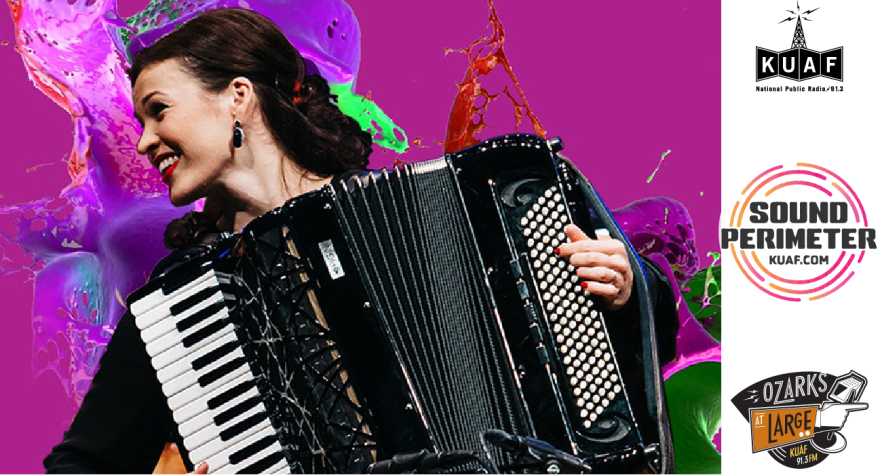Within The Sound Perimeter: Music And Human Connection

Table of Contents
The Neuroscience of Shared Musical Experiences
The impact of music on our brains is a rich area of study, revealing the neurological underpinnings of its ability to connect us. Shared musical experiences, in particular, trigger fascinating neurological responses. A key player is the mirror neuron system. These specialized neurons fire both when we perform an action and when we observe someone else performing the same action. In the context of music, mirror neurons help us understand and empathize with the emotions expressed through music, fostering a sense of shared experience and connection.
Furthermore, engaging with music, whether listening or performing, triggers the release of endorphins and oxytocin, the so-called "love hormone." These neurochemicals play a crucial role in social bonding, reducing stress and promoting feelings of well-being and connection.
- Synchronization of brain activity: Studies using EEG and fMRI have shown that when people make music together, their brainwaves synchronize, creating a sense of unified experience.
- Enhanced feelings of social cohesion and trust: The shared emotional experience of musical performance or listening enhances feelings of social cohesion and trust among participants.
- Reduction in stress hormones: Studies demonstrate a reduction in cortisol (a stress hormone) levels during and after musical engagement, promoting relaxation and strengthening social bonds.
These neurological effects of music highlight its therapeutic potential. Music therapy leverages these mechanisms to improve social interaction, reduce anxiety, and enhance overall well-being.
Music as a Catalyst for Social Cohesion
Music's ability to transcend boundaries and unite individuals is profoundly powerful. It acts as a catalyst for social cohesion in diverse settings. From massive music festivals drawing hundreds of thousands of people together to intimate church choirs fostering community bonds, music creates a shared space for collective experience.
Consider the impact of music in:
- Concerts and festivals: These events provide a powerful sense of shared identity, bringing diverse individuals together under a banner of shared musical passion.
- Religious ceremonies: Music plays a central role in religious rituals worldwide, reinforcing community identity and fostering spiritual connection.
- Choirs and bands: Participating in musical groups cultivates teamwork, shared purpose, and strengthens social bonds within the group.
Music has also played a critical role in:
- Social movements and political change: Anthems and protest songs have historically been powerful tools for mobilizing social movements and expressing collective identity.
- Intercultural dialogue and understanding: Music can bridge cultural divides, facilitating communication and understanding between diverse populations.
- Friendship formation: Shared musical tastes often form the basis for friendships, as individuals bond over their appreciation for particular artists, genres, or experiences. This demonstrates the significant role of music and human connection in relationship formation.
Music and Emotional Expression and Understanding
Music possesses a unique ability to convey emotions that are often difficult to articulate verbally. It can capture the nuances of human experience in a way that transcends language barriers. Whether expressing joy, sorrow, anger, or peace, music serves as a powerful conduit for emotional expression.
This emotional power has profound implications for:
- Emotional regulation and self-soothing: Listening to music can help individuals regulate their emotions, finding solace and comfort in familiar melodies or rhythmic patterns.
- Trauma healing and grief processing: Music therapy is increasingly used in the treatment of trauma and grief, providing a non-verbal avenue for emotional processing and healing.
- Empathy and understanding: By listening to and engaging with music that expresses diverse emotions, we can cultivate empathy and deepen our understanding of the human experience. Music allows us to connect with others on an emotional level, even when words fail. This aspect of music and human connection is essential for building strong and meaningful relationships.
Music's ability to evoke nostalgia and memories also plays a vital role in its emotional impact. Specific songs can instantly transport us back to particular moments in our lives, strengthening our connection to the past and the people we associate with those memories.
Music in Relationships
The role of music extends to all types of relationships, shaping our interactions and contributing to relationship satisfaction.
- Romantic relationships: Shared musical tastes and experiences often form a cornerstone of romantic relationships, creating intimacy and shared memories.
- Family bonds: Family traditions often include music, creating shared experiences and a sense of belonging.
- Friendships: Friendships are often strengthened through shared concert experiences, music recommendations, and bonding over shared musical tastes.
Music acts as a shared language, creating a common ground for emotional connection and building strong bonds. It can set the mood, create meaningful memories, and ultimately enhance the quality of our relationships. The power of music and human connection in intimate relationships is undeniable.
Conclusion
The power of music to forge human connection is a testament to its enduring influence on our emotional, social, and neurological well-being. From the physiological responses elicited by shared musical experiences to the creation of vibrant communities united by a shared love of music, its impact is profound and far-reaching. By understanding the intricate ways in which music shapes our relationships and emotional landscapes, we can better appreciate its critical role in fostering a sense of belonging and enriching our lives. To further explore the fascinating relationship between music and human connection, delve deeper into the research and resources available on the topic, and discover how music can enhance your own connections and well-being. Remember, the power of music and human connection is all around you — embrace it!

Featured Posts
-
 Traders Pare Bets On Boe Rate Cuts As Pound Gains After Uk Inflation Data
May 22, 2025
Traders Pare Bets On Boe Rate Cuts As Pound Gains After Uk Inflation Data
May 22, 2025 -
 Pre Hellfest Rencontres Avec Des Novelistes A L Espace Julien
May 22, 2025
Pre Hellfest Rencontres Avec Des Novelistes A L Espace Julien
May 22, 2025 -
 Emploi Cordistes Nantes L Influence Des Nouvelles Constructions
May 22, 2025
Emploi Cordistes Nantes L Influence Des Nouvelles Constructions
May 22, 2025 -
 Shpani A Go Osvoi Tronot Vo Ln Tragichni Penali Za Khrvatska
May 22, 2025
Shpani A Go Osvoi Tronot Vo Ln Tragichni Penali Za Khrvatska
May 22, 2025 -
 T Mobiles 16 Million Data Breach Fine Three Years Of Violations
May 22, 2025
T Mobiles 16 Million Data Breach Fine Three Years Of Violations
May 22, 2025
